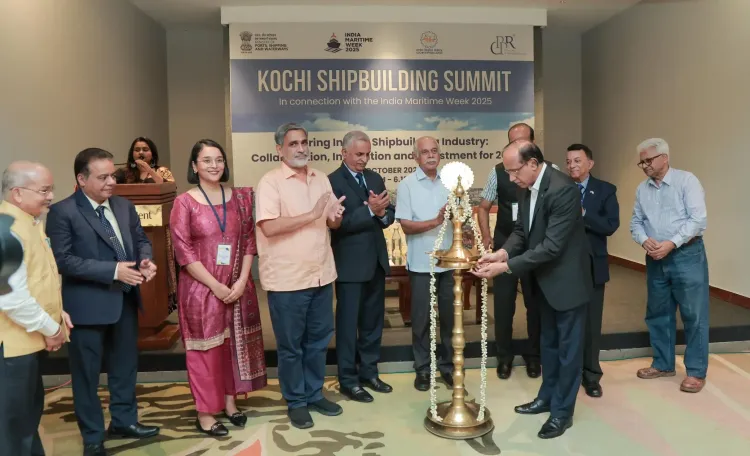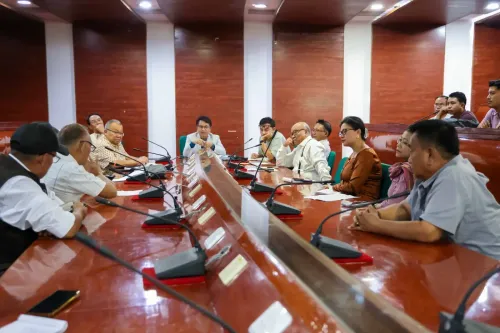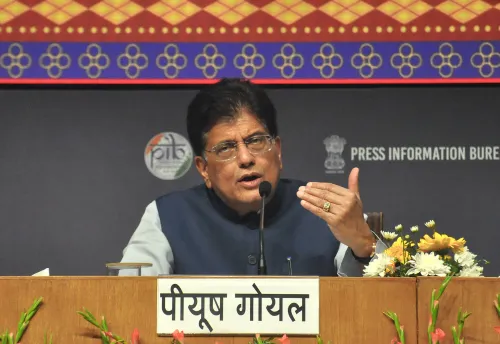Is India Set to Become a Global Maritime Leader by 2047?

Synopsis
Key Takeaways
- India aims for top five shipbuilding status by 2047.
- Collaboration between government, industry, and academia is crucial.
- Financial initiatives like the Shipbuilding Financial Assistance Scheme will drive growth.
- Sustainability and innovation are key to long-term competitiveness.
- Youthful workforce and growing domestic market back ambitions.
Kochi, October 22 (NationPress) India’s aspirations to establish itself as a global shipbuilding leader have received a significant boost during the Kochi Shipbuilding Summit 2025, co-hosted by Cochin Shipyard Limited (CSL) and the Centre for Public Policy Research (CPPR) on Wednesday.
The summit, serving as a precursor to India Maritime Week 2025, outlined a strategic plan to elevate India into the top five shipbuilding nations globally by the year 2047.
Discussions revolved around creating an ecosystem that capitalizes on India’s robust industrial infrastructure, skilled labor force, and strategic policy frameworks to enhance its maritime competitiveness.
Madhu S. Nair, the Chairman and Managing Director of CSL, characterized shipbuilding as a “mother industry” essential for driving economic growth, technological advancements, and job creation.
He emphasized that India’s resilient economy, youthful workforce, and expanding domestic market provide the necessary scale and strength to support its international ambitions.
“With an anticipated GDP of $30 trillion by 2047, India is poised to lead the next phase of shipbuilding,” he remarked.
D. Dhanuraj, Chairman of CPPR, stressed the importance of enhanced collaboration between academia and industry.
“To close capability gaps and drive innovation, we need to establish a research-focused, skill-oriented ecosystem with robust global collaborations,” he stated.
A high-profile panel discussion, led by R. P. Pradhan, a professor at BITS Pilani (Goa Campus), included maritime experts such as G. Ashok Kumar, former Vice Chief of Naval Staff; Biju George from Mazagon Dock Shipbuilders; Hariraj P from SEDS; and Satheesh Babu P.K. of CUSAT.
Speakers highlighted significant growth drivers like the Shipbuilding Financial Assistance Scheme and the Maritime Development Fund, emphasizing the importance of financial reforms, technological integration, and digital transformation.
The summit concluded with a collective agreement to strengthen partnerships among government, industry, and academia to propel India’s transition from a regional entity to a global maritime hub by 2047.








